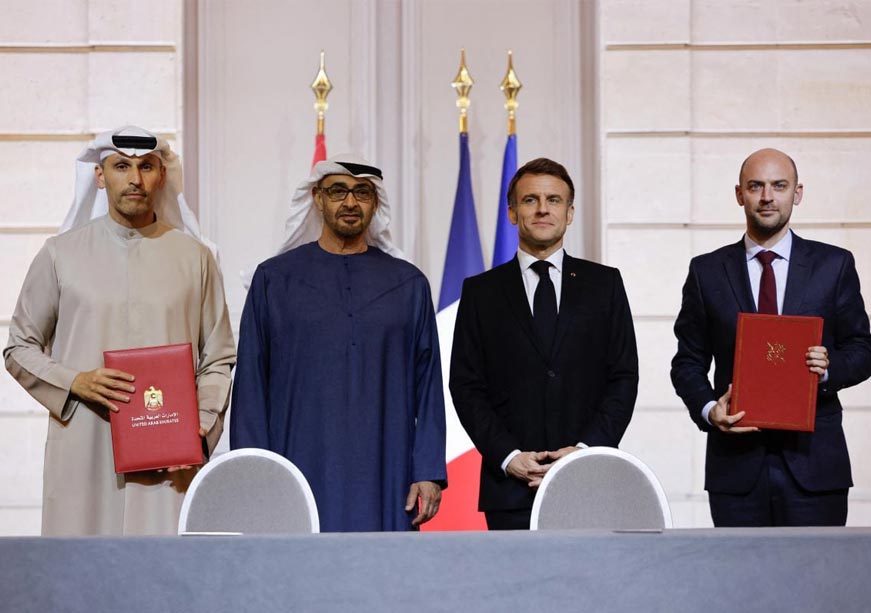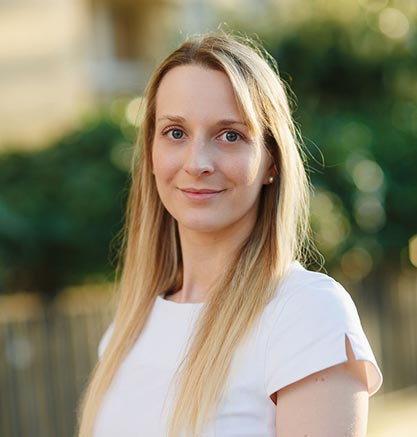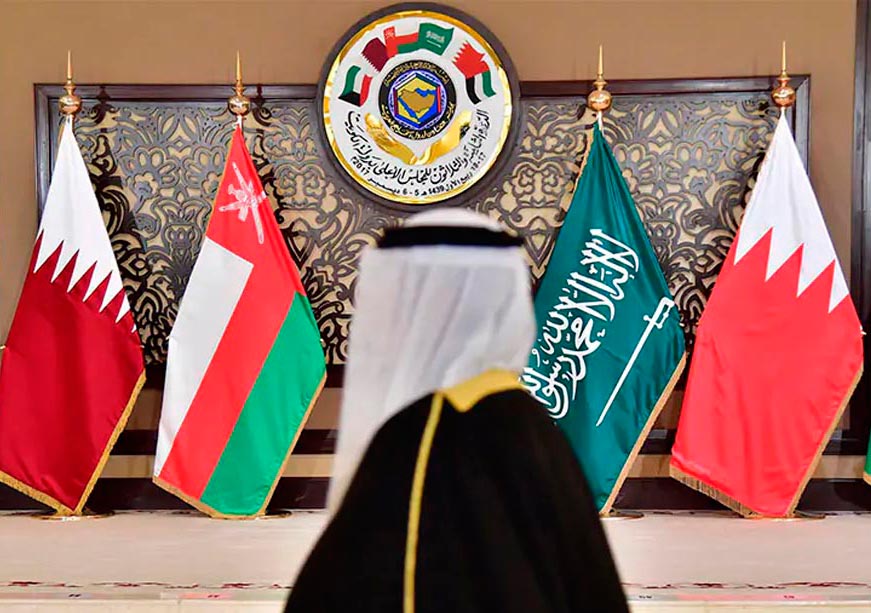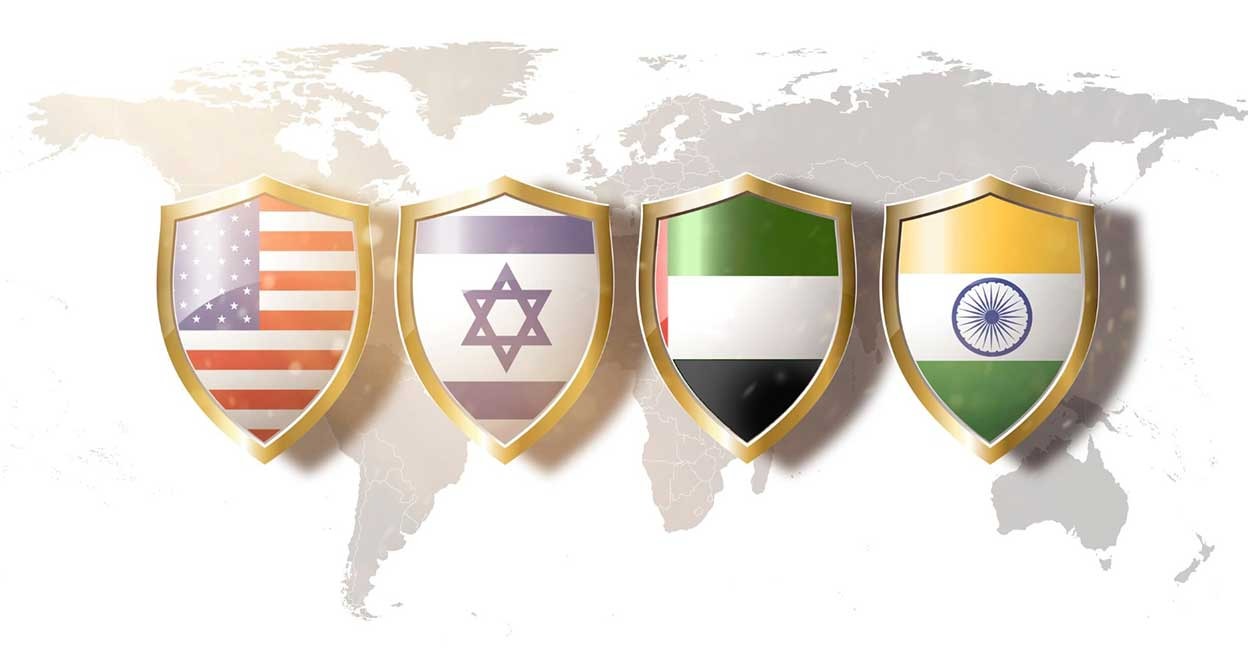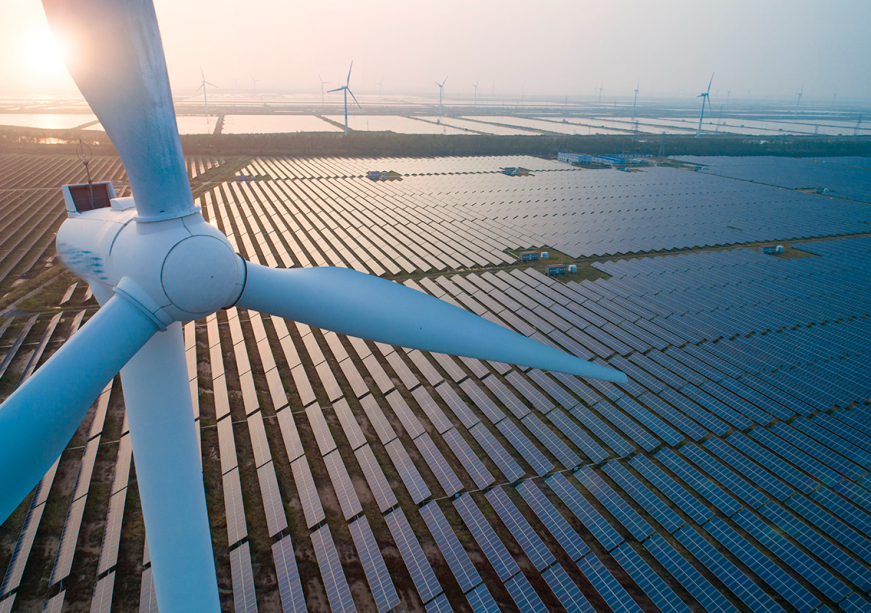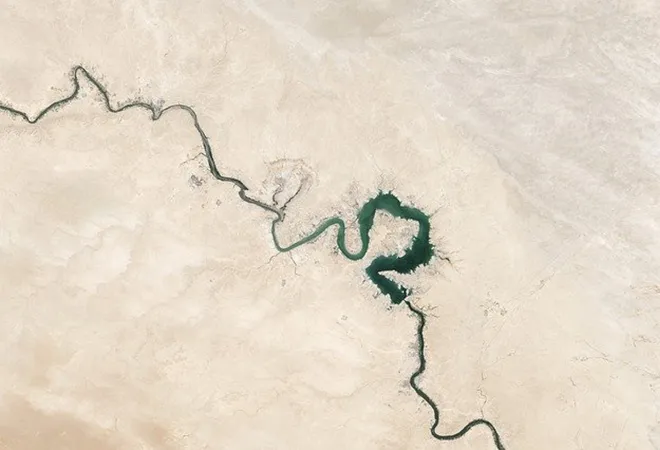Conducting foreign policy in an evolving geopolitical environment—shaped by global, structural transformations—requires forward-looking, strategic thinking. To navigate these transnational changes and capitalise on emerging opportunities, states need a compass. As an organising principle for foreign policy, Grand Strategies serve this purpose. They align resources, instruments, and actions, considering the potential trajectories of global transformations. This brief assesses how Grand Strategies reflect a global trend, such as the emergence of digital technologies, and use transnational partnerships for the achievement of national objectives. It conducts the analysis in the context of the Artificial Intelligence (AI) cooperation between the UAE and France, two leading AI powers in their regions, aiming to elevate and consolidate their positions globally. Considering the complementarity and convergence of these countries’ Grand Strategies in AI, this brief argues that a bilateral sectoral partnership, embedded in a broader Franco-Emirati cooperation framework, can catalyse the achievement of their goals.
Attribution: Eszter Karacsony, “Convergence in Grand Strategies: The France-UAE Partnership in AI,” ORF Issue Brief No. 835, Observer Research Foundation, September 2025.
Introduction
In the realm of foreign policy, a ‘grand strategy’ is a concept that addresses a fundamental challenge: “aligning means and ends” over an extended period of time.[1] As scholars Therry Balzacq and Mark Corcoral note, it helps to “understand and explain how and why a state interacts with other actors in a given way and how it combines various military, diplomatic, economic, and cultural instruments to achieve its ends in a largely coherent fashion.”[2] The strategy determines the path and sets the boundaries of a state’s foreign policy; it aligns internal and external policy objectives; and as researcher Michael Eskenazi elaborates, “helps with the allocation of resources between short-term needs and long-term goals.”[3]
A ‘grand strategy’ may comprise different sectoral domains, policy and strategic objectives, as well as different timeframes for achieving various goals. It is nourished by the experiences of the past but defined in the present while being future-oriented. The grand strategy reflects the structural dynamics of a country’s strategic environment based on the long-term trajectories of the transnational trends shaping them. Therefore, to best serve a state’s interest in an evolving global context, the grand strategy should not be a static framework but an adjustable structure. As diplomat Martin Briens and historian Thomas Gomart suggest in their joint study, a grand strategy is constructed through an “analysis of the changing international system and is intended to steer it based on a state’s desired role in this system.”[4]
Integrating Megatrends into Grand Strategies
A grand strategy calls for understanding and anticipating structural transformations, also referred to as ‘megatrends’ or global trends. These underlying megatrends can be observed in the present but they gradually unfold and have a lasting, transnational impact over the long term (perhaps in 10+ years).[5] To prepare for and capitalise on the potential impacts of these trends, states can make use of strategic foresight to fashion their foreign policy, which, as Briens and Gomart put it, “must begin by identifying and joining up the major areas of transformation of the international system.”[6] According to the United Nations (UN), the current megatrends—which inevitably transform a state’s strategic environment and (re)define its room to manoeuvre—are climate change, demographic shifts, urbanisation, the emergence of digital technologies, and inequalities.[7]
For the purpose of this brief, ‘grand strategy’ refers to a state’s intention and subsequent resource mobilisation to define, sustain, and adapt its role on the global stage, with the overarching goal being the effective pursuit of its national interests. Such pursuit calls for the coordinated and strategic use of political, diplomatic, economic and military tools and means. Depending on their key purposes and the issues they focus on, as well as the predominance of the type of tools and means used, some grand strategies can be characterised as ‘adaptative’ while others may be mainly ‘shaping’ or ‘controlling’.[8] This brief focuses on the first category.
A grand strategy cannot be analysed as a stand-alone guiding thread, as it is inherently designed and implemented in reaction to other states’ external actions and vision.[9] As Eskenazi puts it, “strategic policy is not only about the subject government’s objectives and actions; it is also about how the subject government perceives other governments’ objectives and actions.”[10] When key elements and objectives of grand strategies correlate, cooperation between states in specific sectors can facilitate or even catalyse the achievement of national goals; structured and lasting international partnerships become tools serving the parties’ joint interests. Such cooperation can only last if the countries involved are trusted partners and their grand strategies are neither mutually exclusive nor contradictory.
This brief focuses on one of the five transformative megatrends identified by the UN—the emergence and growth of digital technologies,[11] and more specifically, of artificial intelligence (AI).[12] It analyses how states’ grand strategies reflect a specific transformative megatrend; and how convergence in these strategies can lead to transnational cooperation as a means of achieving national objectives. The case study is the cooperation in AI between the United Arab Emirates (UAE) and France.
Analysing these two states’ AI cooperation is particularly pertinent as both are top AI players in their respective regions. According to the Global AI Index 2024, France leads within the European Union (EU) and is fifth globally in terms of AI capacity (implementation, innovation, investment scale and intensity),[13] whereas the UAE ranks third in the Middle East and is 20th globally. Stanford University’s Global AI Vibrancy Tool 2024, which measures national progress in AI, ranks the UAE first in its region and fifth globally,[14] while France ranks first in the EU and sixth globally.[15] The rankings suggest that a France-UAE bilateral AI cooperation has significant potential to shape both the European and Middle Eastern AI landscapes, with wider international implications.
France-UAE Cooperation in AI
A strategic partnership, with a renewed roadmap for 2020-2030, and regular strategic dialogues since 2008,[16] have shaped the cooperation between France and the UAE.[17] The current multi-sectoral partnership grew out of a primarily security and energy policy-oriented collaboration,[18] gradually encompassing new fields of cooperation including science and technology. During his visit to France in March 2025, H.H. Sheikh Abdullah Bin Zayed Al Nahyan, Deputy Prime Minister and Minister of Foreign Affairs of the UAE, “affirmed the UAE’s commitment to strengthening its strategic relations with France and leveraging all available opportunities to develop and enhance bilateral cooperation frameworks for the prosperity of both nations.”[19]
AI is emerging as a new pillar of the bilateral partnership: the two countries signed a framework cooperation agreement on AI[20] shortly before the AI Action Summit in Paris in February 2025. They have also expressed interest in supporting projects that seek to advance AI value chains in both countries. The initiatives will address the infrastructure and talent-related needs of the parties.[21] To further the partnership, French Minister of Economy, Finance and Industrial and Digital Sovereignty Eric Lombard, and Minister Delegate in charge of Artificial Intelligence and Digital Affairs Clara Chappaz, visited the UAE in early May 2025.[22]
The objectives and practical goals of this cooperation are deeply rooted in the two states’ grand strategies and, as such, in the role they aim to play in the international AI race and governance. A prominent manifestation of the UAE’s grand strategy is its document, ‘Centennial 2071’,[a] which calls for making a “diversified knowledge economy” one of its sectoral pillars.[23] The UAE seeks to become a global leader in and regional hub for AI,[24] as mentioned in its International Stance on Artificial Intelligence Policy[25] and its National Strategy for Artificial Intelligence 2031.[26] In accordance with these objectives, H.E. Omar Sultan Al Olama, UAE Minister of State for Artificial Intelligence stated that in the latter strategy, “The UAE will build an AI economy, not wait for one. […] The UAE has a vision to become one of the leading nations in AI by 2031 in alignment with the UAE Centennial 2071, creating new economic, educational, and social opportunities for citizens, governments and businesses […].”[27]
The means and tools to facilitate becoming a global leader in AI are also spelt out in these strategic documents. One of them is international cooperation; the country “supports establishing international alliances for governing, securing and developing AI systems”, and is “dedicated to strengthening […] national and international partnerships, anchored in shared values of cooperation, responsibility, and transparency, to advance AI development and tackle global challenges.”[28] As stated in its International Stance on Artificial Intelligence Policy, such collaborations can “enhance the UAE’s status as a hub for AI innovations.”[29] Thus, international partnerships and alliances are perceived through the lens of the UAE’s grand strategy as cornerstones of the pursuit of national interest.
Numerous similarities can be observed between the UAE’s AI strategy and France’s dedicated sectoral grand strategy. The France 2030 investment plan is aimed at “sustainably transforming key sectors of our [the state’s] economy, and positioning France not only as a player but as a leader in the world of tomorrow”; it wants France “to regain its environmental, industrial, technological, health and cultural independence and to position itself as a leader in strategic sectors.”[30] Accordingly, and in line with the main objectives set by President Emmanuel Macron for the country’s progress in AI, France’s National AI Strategy, implemented in multiple phases, seeks to make France “a global leader in artificial intelligence.”[31] To further define the road ahead, a new landmark document, ‘Make France an AI Powerhouse’, was also published in February 2025.[32] The latter highlights that the AI vision advanced by Paris builds on the country’s strategic strengths and potential; as President Macron said, “France has everything it needs to secure its place in the AI revolution. […] At the heart of Europe, at the heart of the AI revolution, France is a crossroads for all those who want to create and innovate. In this regard, France aims to host and reinforce its talents, corporates, as well as cutting-edge infrastructures for the development and use of AI, to serve its innovation ecosystem, from startups to industry and research laboratories.”[33]
Like the UAE, France too, views partnerships with trusted states as a means of national goal achievement, and has upheld the cooperation agreement concluded with the UAE in February 2025 as a prominent example.[34] The French strategy also focuses on the importance of cooperation in research and training—officialised by a protocol agreement—between the French engineering school École Polytechnique and the Emirati Mohamed bin Zayed University for Artificial Intelligence (MBZUAI).[35] France and the UAE will thus mutually reinforce each other’s research and development capacity and address needs related to talent.
A talent pool has been identified by both states as a cornerstone for the development, maintenance and adaptation of their respective AI ecosystems. Building this pool goes hand-in-hand with attracting tech firms and industries that look for skilled workforce and are also willing to invest in training. Once it is considered by investors as a promising hub for talents, knowledge and innovation, with a transparent and consistent regulatory framework, the UAE believes its virtuous circle of AI ecosystem development can take off. As the Emirati National Strategy for Artificial Intelligence notes, the UAE does not yet have a “strong AI talent hub, (but) it is building attractors that will grow the technical community here (in the country) quickly.”[36]
The areas covered by the France-UAE AI cooperation framework respond to the two states’ primary needs in terms of investment in essential physical infrastructure, training talents, attracting entrepreneurs and fostering research and innovation. The Global AI Index 2024 report noted that the UAE has room for improvement in the domain of skilled talent, where France scores higher;[37] while France is predominantly in need of investment in physical infrastructure located within its territory, according to a diplomatic source.[38] Such investments can be partially provided by the UAE, as it has the financial resources.[39] To advance its digital sovereignty objectives, having its entire AI infrastructure capability within its own territory is vital for France.[40] As for the UAE, investing in physical infrastructure is a well-tested business model with the promise of future gains this new technology could provide.[41] France is a particularly attractive investment destination due to its abundant and accessible low-carbon electricity mix[42] (especially nuclear energy), indispensable for the highly energy-intensive AI infrastructure. Additionally, Paris seeks to encourage Emirati investments in the French AI start-up ecosystem.[43]
Strengthening economic ties through investments is already a core component of the Franco-Emirati Strategic Partnership. To this end, the UAE-France High-Level Business Council was set up in 2022,[44] while a bilateral Investors Meetup platform was started in 2023.[45] Within these collaborative mechanisms AI has become a key target sector for corporate investment. As the bilateral cooperation in AI is embedded in a broader long-standing strategic partnership, with operative platforms, it is likely to grow further.
When Interests Converge
The most important feature of the France-UAE cooperation agreement on AI is the decision to set up a 1.4 gigawatt (GW)[b] campus dedicated to AI in France’s Île-de-France region by the end of the decade, requiring EUR 8.5 billion (around US$10 billion) investment for “its first operational phase”.[46],[47] The financing will come from a consortium of ‘Franco-Emirati champions’[48] including Bpifrance, a French public investment bank, MGX, a prominent Emirati investment fund in AI and advanced technologies, the French startup Mistral AI, one of the leading European actors in Generative AI, and NVIDIA, a global leader in AI computing infrastructure from the United States (US).[49] The complementary profile and fields of expertise of the partners allow for setting up a full-scale AI ecosystem, covering the entire AI lifecycle. Beside the core partnership of the joint venture, others such as École Polytechnique, EDF (Electricité de France), France’s national electric utility company, RTE (Réseau de Transport d’Electricité), the country’s electricity transmission operator, Sipartech, French telecommunication infrastructure operator, and Bouygues, a leading company in construction, energy and telecommunication, will also be involved.[50]
The AI campus project, a concrete output of the cooperation between Paris and Abu Dhabi, also has a symbolic message to the international community: it shows that France and the UAE are assertive and legitimate AI powers. Building on this dynamic, as they consolidate their positions as AI leaders, it will be interesting to observe whether the two countries’ national identities[51] (sense of self) get redefined. National identity evolution takes time, and the states’ narratives about their roles needs to draw upon tangible and sustainable action, like the AI campus.
The collaboration—grounded in converging strategic visions, shared objectives and toolsets—holds the promise of yielding further tangible results. Such promise also stems from the integration of the AI cooperation framework into a historical and comprehensive partnership between Paris and Abu Dhabi.
Table 1 : Converging Factors in the French and Emirati Grand Strategies[52]
| UAE | France | |
| Recognition of opportunities as the AI revolution becomes a megatrend | Yes | Yes |
| Having an AI Grand Strategy | Yes.
National Strategy For Artificial Intelligence 2031 |
Yes.
“Make France an AI powerhouse” strategy; The National Strategy for Artificial Intelligence |
| Existence of a comprehensive global partnership framework in which the AI strategy is embedded | Yes, a bilateral Strategic Partnership with France | Yes, a bilateral Strategic Partnership with the UAE |
| Ambition – scope of action | Regional – in the Middle East, Global | Regional – at the European level, Global |
| Objectives | Becoming leader in AI;
building a reputation as an AI destination; becoming a competitive regional hub for AI |
Becoming leader in AI;
creating a reputation for talent formation; becoming a leading hub for generative AI in Europe |
| Transnational collaboration identified as means of national goal achievement | Yes | Yes |
| Sectoral partnership in AI | Yes, framework cooperation agreement in AI with France | Yes, framework cooperation agreement in AI with UAE |
| Concrete projects | Yes.
Jointly establishing Europe’s largest AI campus (1.4 GW) in Île-de-France |
Yes.
Jointly establishing Europe’s largest AI campus (1.4 GW) in Île-de-France |
Conclusion
The AI components of the French and Emirati grand strategies are complementary and have significant convergences. Both states are among the leading AI powers in their respective regions and are positioning themselves as global players as well. To sustainably address their needs and remedy potential deficiencies, bilateral cooperation in AI is considered an essential means of national goal achievement, embedded in a broader France-UAE partnership framework.
Even though both countries claim to be—or aim to become—among the world’s AI leaders, they could still cooperate and engage in constructive competition. Their geographical positions, strategic visions, and resources allow them to serve as AI hubs in their respective regions and facilitate inter-regional cooperation.
The UAE-France AI partnerships is an illustrative example of how ‘grand strategies’ that recognise and build on a specific megatrend can guide countries’ interstate relations to capitalise on emerging opportunities.
Eszter Karacsony is Associate Fellow, Geopolitics and Program Lead, ORF Middle East.
All views expressed in this publication are solely those of the author, and do not represent the Observer Research Foundation, either in its entirety or its officials and personnel.
Endnotes
[a] This is the UAE government’s “full-vision plan” for the next five decades (2021-2071).
[b] Originally, in February 2025, the 1 GW campus was announced.
[1] “The Enduring Appeal of Grand Strategy,” in The Oxford Handbook of Grand Strategy, ed. Thierry Balzacq and Ronald R. Krebs (Oxford Academic, 2021) pp. 5, https://academic.oup.com/edited-volume/35431/chapter-abstract/303226718?redirectedFrom=fulltext
[2]Oxford Research Encyclopedias, “Summary to Thierry Balzacq and Mark Corcoral,” Oxford Research Encyclopedias, https://oxfordre.com/internationalstudies/display/10.1093/acrefore/9780190846626.001.0001/acrefore-9780190846626-e-498
[3]Michal Eskenazi, “Abstract,” in The Making of Foreign Policy. On Paradigms and Grand Strategies, Mitvim, 2015, pp. 1, https://mitvim.org.il/wp-content/uploads/Michael_Eskenazi_-_The_Making_of_Foreign_Policy_-_August_2015.pdf
[4]Martin Briens and Thomas Gomart, “Preparing for 2050: From Foresight to Grand Strategy,” Politique étrangère, no. 4 (2021): ii.
[5]European Commission Competence Centre on Foresight, “The Megatrends Hub,” European Commission Competence Centre on Foresight, https://knowledge4policy.ec.europa.eu/foresight/tool/megatrends-hub_en Aloysius Teh and Adithi Pandit, “The Power of Megatrends for Strategists and Decision Makers: Why All Organisations Need to Consider Megatrends,” Deloitte, 2023, https://www.deloitte.com/nz/en/Industries/government-public/perspectives/the-power-of-megatrends-for-strategists-and-decision-makers.html
[6] Briens and Gomart, “Preparing for 2050,” pp. v.
[7]United Nations, Executive Summary in Report of the UN Economist Network for the UN 75th Anniversary Shaping the Trends of Our Time, United Nations, 2020, pp. 2, https://www.un.org/development/desa/publications/wp-content/uploads/sites/10/2020/10/20-124-UNEN-75Report-ExecSumm-EN-REVISED.pdf
[8] “A Three-dimensional Study of Grand Strategy. An Interview with Simon Reich,” Sciences Po Center for International Studies, 2021, https://www.sciencespo.fr/ceri/en/content/three-dimensional-study-grand-strategy-interview-simon-reich
[9]“The Making of Foreign Policy.”
[10]“The Making of Foreign Policy.”
[11]“Executive Summary,” in Report of the UN Economist Network for the UN 75th Anniversary Shaping the Trends of Our Time.
[12]“Artificial Intelligence (AI),” United Nations, https://www.un.org/en/global-issues/artificial-intelligence
[13]Joe White and Serena Cesareo, “The Global AI Index,” Tortoise Media, 2024, https://www.tortoisemedia.com/data/global-ai
[14] “Global AI Power Rankings: Stanford HAI Tool Ranks 36 Countries in AI,” Stanford University, 2024, https://hai.stanford.edu/news/global-ai-power-rankings-stanford-hai-tool-ranks-36-countries-in-ai
[15] Loredana Fattorini et al., The Global AI Vibrancy Tool, Stanford University, 2024, pp. 21, https://hai.stanford.edu/assets/files/global_ai_vibrancy_tool_paper_november2024.pdf
[16]United Arab Emirates Ministry of Foreign Affairs, “UAE and France. A Strategic Partnership and Consensus in Facing Global Challenges,” United Arab Emirates Ministry of Foreign Affairs, 2022, https://www.mofa.gov.ae/en/missions/paris/media-hub/embassy-news/9-global-challenges
[17] United Arab Emirates Ministry of Foreign Affairs, “The 12th Session of the UAE-France Strategic Dialogue Endorses Ambitious 10-Year Bilateral Roadmap,” United Arab Emirates Ministry of Foreign Affairs, 2020, https://www.mofa.gov.ae/en/mediahub/news/2020/6/3/03-06-2020-uae-france
[18] Ministère de l’Europe et des Affaires étrangères, “Relations bilatérales,” Ministère de l’Europe et des Affaires étrangères, 2025.
[19]“Abdullah Bin Zayed, French Minister of Economy, Finance and Industry, Explore Joint Cooperation,” United Arab Emirates Ministry of Foreign Affairs, 2025, https://www.mofa.gov.ae/en/mediahub/news/2025/3/11/11-3-2025-uae-france2
[20] Ambassade de France à Abu Dhabi, “Chronologie Bilatérale,” Ambassade de France à Abu Dhabi, https://ae.ambafrance.org/Chronologie-bilaterale-350
[21] “Dîner de Travail avec Son Altesse Cheikh Mohamed Bin Zayed Al-Nahyan.”
[22] Ambassade de France à Abu Dhabi, “Visite aux Emirats Arabes nis d’Eric Lombard et de Clara Chappaz (5 mai 2025),” Ambassade de France à Abu Dhabi, 2025, https://ae.ambafrance.org/Visite-aux-Emirats-arabes-unis-d-Eric-Lombard-et-de-Clara-Chappaz-5-mai-2025
[23]U.AE, “UAE Centennial 2071,” U.AE, https://u.ae/en/about-the-uae/strategies-initiatives-and-awards/strategies-plans-and-visions/innovation-and-future-shaping/uae-centennial-2071
[24]Government of the United Arab Emirates, UAE’s International Stance on Artificial Intelligence Policy (Government of United Arab Emirates, 2024), https://uaelegislation.gov.ae/en/policy/details/uae-s-international-stance-on-artificial-intelligence-policy
[25]Government of United Arab Emirates, UAE’s International Stance on Artificial Intelligence Policy.
[26]United Arab Emirates Minister of State for Artificial Intelligence Office, UAE National Strategy For Artificial Intelligence 2031 (United Arab Emirates Minister of State for Artificial Intelligence Office, 2018), https://ai.gov.ae/wp-content/uploads/2021/07/UAE-National-Strategy-for-Artificial-Intelligence-2031.pdf
[27]Ministerial Forward to United Arab Emirates Minister of State for Artificial Intelligence Office, “UAE National Strategy for Artificial Intelligence 2031,” pp. 7.
[28]Government of United Arab Emirates, UAE’s International Stance on Artificial Intelligence Policy.
[29] Government of United Arab Emirates, UAE’s International Stance on Artificial Intelligence Policy.
[30] Igasnier, “France 2030: Building on Your Side the France of Tomorrow,” Business France, https://world.businessfrance.fr/nordic/france-2030-building-on-your-side-the-france-of-tomorrow/
[31] Gouvernement, Stratégie Nationale pour l’Intelligence Artificielle – 2e phase : Conquérir les Talents et Transformer Notre Potentiel Scientifique en Succès Economiques (2021), pp. 6, https://www.enseignementsup-recherche.gouv.fr/sites/default/files/2021-11/dossier-de-presse—strat-gie-nationale-pour-l-intelligence-artificielle-2e-phase-14920.pdf Quote translated from French to English by Eszter Karacsony.
[32] “Make France an AI Powerhouse,” Elysée, 2025, https://www.elysee.fr/admin/upload/default/0001/17/d9c1462e7337d353f918aac7d654b896b77c5349.pdf
[33]“Make France an AI Powerhouse,” pp. 2.
[34]“Make France an AI Powerhouse,” pp. 23.
[35]“Make France an AI Powerhouse,” pp. 14.
[36]United Arab Emirates Minister of State for Artificial Intelligence Office, “UAE National Strategy for Artificial Intelligence 2031,” pp. 28.
[37]White and Cesareo, “The Global AI Index.”
[38]Interview conducted with a diplomatic source, 2025.
[39]Interview conducted with a diplomatic source, 2025.
[40]Interview conducted with a diplomatic source, 2025.
[41]Interview conducted with a diplomatic source, 2025.
[42]International Energy Agency, Energy System of France, IEA.
[43]Interview conducted with a diplomatic source, June 2025.
[44]TotalEnergies, https://totalenergies.com/news/press-releases/uae-france-high-level-business-council-meeting-was-held-participation-over-50
[45]“Visite aux Emirats Arabes Unis d’Eric Lombard et de Clara Chappaz (5 mai 2025).”
[46] “Press Kit – Choose France 2025,” Business France, 2025, pp. 8, https://en.media.businessfrance.fr/assets/dp-choosefr-2025-en-2005-11h23-1-1-pdf-9570c-aba4d.html
[47]TotalEnergies, https://totalenergies.com/news/press-releases/uae-france-high-level-business-council-meeting-was-held-participation-over-50
[48] “Dîner de Travail avec Son Altesse Cheikh Mohamed Bin Zayed Al-Nahyan.”
[49]“MGX, Bpifrance, Mistral AI et NVIDIA Annoncent la Création d’une Joint-Venture pour Développer en France le Plus Grand Campus IA d’Europe,” bpifrance, 2025, https://presse.bpifrance.fr/mgx-bpifrance-mistral-ai-et-nvidia-annoncent-la-creation-dune-joint-venture-pour-developper-en-france-le-plus-grand-campus-ia-deurope
[50] “MGX, Bpifrance, Mistral AI et NVIDIA Annoncent la Création d’une Joint-Venture pour Développer en France le Plus Grand Campus IA d’Europe.”
[51]David M. McCourt, “Culture, Identity, and Grand Strategy,” in The Oxford Handbook of Grand Strategy, ed. Thierry Balzacq and Ronald R. Krebs (Oxford Academic, 2021), pp. 303-321, https://academic.oup.com/edited-volume/35431/chapter/303228362
[52] Table made by the author.
